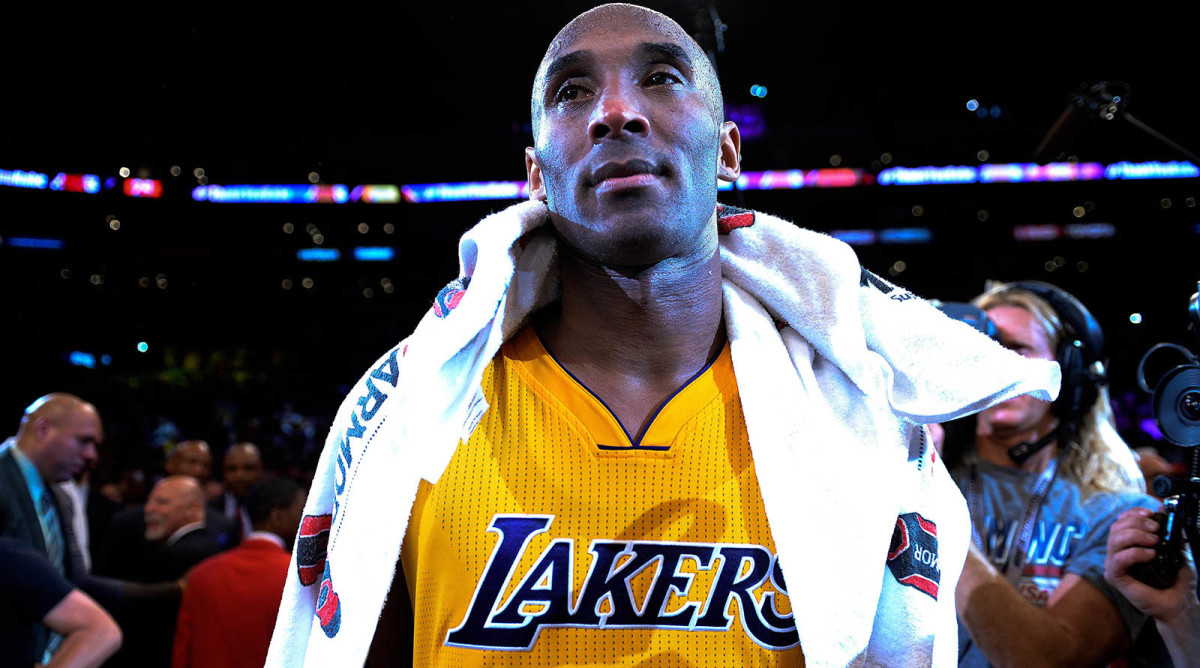Remembering Kobe and Gianna: For the Bryant Family, an Unimaginable Loss

Thirteen-year-old Gianna Bryant and her father are gone, and that is not quite how the Bryants' story will be told, but it’s how we should think about it first. We all get one life, none more important than any other. Gianna did not have the chance to live hers, and the sadness is unbearable. For her mom, Vanessa, and for her sisters Natalia, Bianka and Capri, there will be a million tributes, and all will be insufficient. What do you say? What does it matter?
Their thoughts are theirs, to form over time, and to share only if they ever feel the desire. Our thoughts about the Bryant family should start with Gianna, and nobody understood that better than Kobe Bryant.
From a distance, especially when he was young, Kobe was easy to caricature as the kind of man who would only be happy raising a boy, and then, only a boy like him. He was legendarily competitive, the most committed athlete in his sport, a proud and self-described “alpha male” who had an uneven relationship with his own father. But one reason Kobe Bryant was so alluring was that he didn’t just do what society expected him to do. He coached girls’ basketball and became perhaps the sport’s most prominent fan. He told Jimmy Kimmel that when strangers said he needed a son to carry his legacy, he had a quick answer: Gianna could handle it herself.

One of the hardest tasks for any of us is figuring out who we are. Kobe went beyond that: He always seemed to know who he would become. He knew it when he turned pro out of Lower Merion High School, back when nobody did that; the best basketball prospect in the world at that time, Tim Duncan, decided to return to Wake Forest for his senior season. A SportsCenter anchor quoted an anonymous scout saying the kid had made a mistake. Well.
You could say there were better players, but that was missing the point. Kobe was not about efficiency or advanced metrics or even those best-ever debates. His career was about bending the game to his will. He won three titles with Shaq and two more without. In the middle, of course, he was accused of sexually assaulting a woman in Colorado; charges were dropped and he settled a civil suit. That is part of Bryant’s story, but analyzing the particulars of it today feels both reductive and insensitive to everybody.
He thought he was the best player on the Lakers before he joined the starting lineup. He knew he wanted to marry a teenager named Vanessa Laine when so many said it was a mistake. He set his goal to be the best player ever before he was close to being the best player in the NBA. He saw the Lakers as his team even when teammate Shaquille O’Neal was the most dominant player of his era. He envisioned a happy, creative, post-playing life before he stopped playing.
The basketball court is where he found solace and developed an unwavering belief in himself. The easy comparison, stylistically, was always Michael Jordan; Bryant copied MJ without apology and with stunning success. But the best comparisons were mental, and they transcended sports: Jordan, Tiger Woods, those athletes who expected success, no matter what was happening, because expecting to succeed was their core belief.
We will remember Kobe in a series of indelible moments: not flinching when Matt Barnes faked inbounding the ball into his face; shooting free throws with a torn Achilles; scoring 60 points in his final game. He had two numbers retired. For a generation, the Lakers will always be his team.
The NBA’s Banana Boat generation that came after him—LeBron James, Dwyane Wade, Chris Paul, Carmelo Anthony—is a brotherhood, and that is admirable. But damn, there was nothing quite like the feeling in an arena when Kobe Bryant had the ball in his hands with the clock winding down. They have a word in L.A. for the other nine guys on the court at that moment. Extras.
What a life, but more, what a way to live life. This is what we’ll miss, and this, at its core, is why the grief over Bryant’s death is so profound. This guy had it figured out. He knew how you were supposed to feel when you woke up in the morning. He understood the value of a day. He could make anybody in his orbit understand, too.
Imagine having that man as your dad.
Heartbreaking is the word we use most often when describing the death of a child, and it never feels close to adequate. We will never know the woman that Gianna Bryant would have become. We know her father would have urged her to become whatever she wanted, to dream as big as she could, and then dream bigger than that.
More Coverage of Kobe Bryant's Death:
- Kobe Bryant, Daughter Die in California Helicopter Crash
- Sports World Reacts to Kobe Bryant's Sudden Death
- Remembering Kobe Bryant: Sports Illustrated Covers Through the Years
- Breanna Stewart Mourns One of Her Greatest Supporters: Kobe Bryant
- Spurs-Raptors Open Game With Shot Clock Violations to Honor Kobe
- Shaq Reflects on Kobe's Passing: "There’s No Words to Express the Pain"
